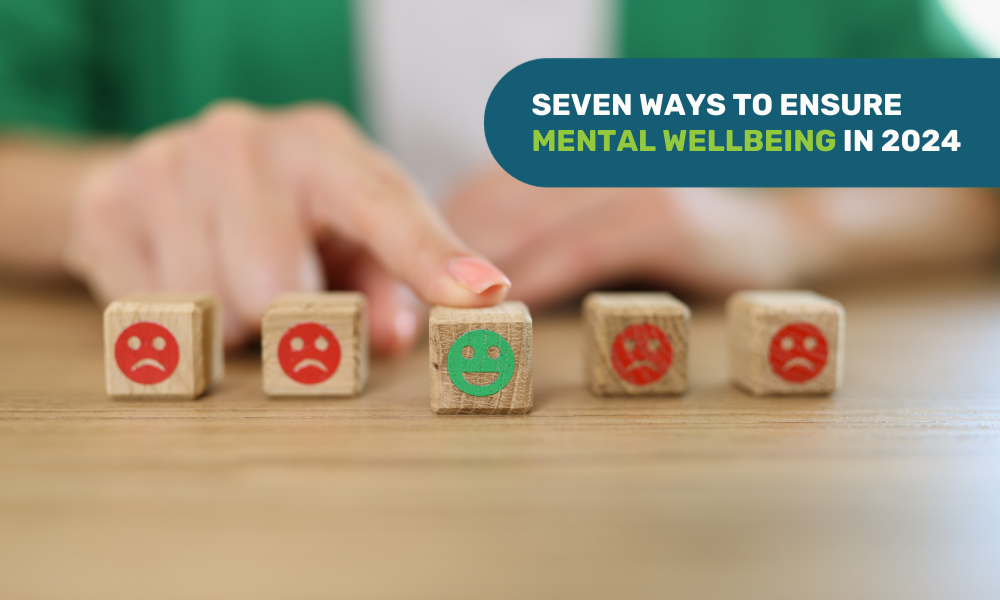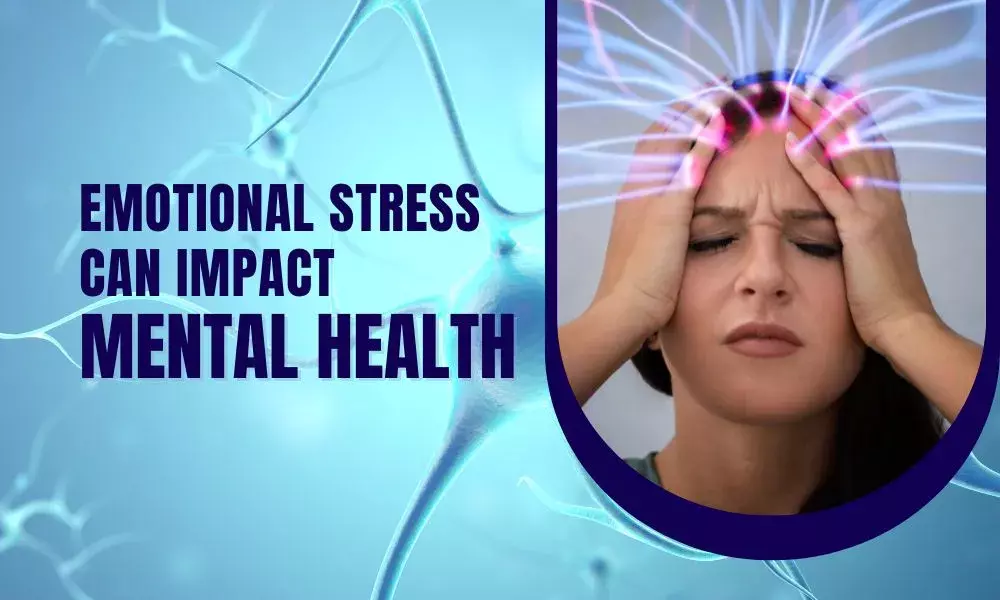We often focus on our physical health. We try to eat well, be physically active, etc. However, our mental wellbeing, as is our physical fitness, is equally vital for our overall health.
Table of Contents:
-
Mental Wellbeing
-
Why is mental wellbeing important?
-
Seven Ways to Ensure Mental Wellbeing
Mental wellbeing helps us to flourish in various aspects of our lives, even through difficult times. Like physical health, mental wellbeing can be exercised and strengthened.
Our mental wellbeing affects all aspects of our lives. This includes how we make friends and socialize, manage stress, and make choices in response to these stimuli.
Mental wellbeing can vary significantly from day to day, sometimes hour to hour. Some days, we might feel comfortable and excited and exhibit strong signs of mental wellbeing. On other days, we may experience the opposite because of a significant loss or dissatisfaction at home or work.
Why is mental wellbeing important?
Every day, we may face something that is out of our control. It depends on an individual’s mental wellbeing, how he or she reacts in difficult times, and how he or she deals with the situation in a way that does not impact their daily life. Here are a few reasons why mental wellbeing is important for an individual’s overall wellbeing.
-
Supports emotional health and emotional wellbeing.
-
Individuals with good mental wellbeing have greater self-esteem.
-
It reduces stress and anxiety.
-
Good mental wellbeing means an individual can face uncertainties better.
-
Better capacity to handle and navigate problems.
Seven Ways to Ensure Mental Wellbeing
Certain life situations are beyond our control and may impact our mental wellbeing. For instance, losing a loved one. As we begin a brand new year, let’s know ways to have good mental health.
-
Eat well: A well-balanced diet is vital to our mental wellbeing. It can do wonders for our mood, sleep, energy levels, and how we feel about ourselves. Eating well can help support positive mental health and must be part of our self-care routine.
-
Connect with others: Interacting with others, especially face-to-face, is a great way to combat stress and boost mood.
-
Exercise regularly: Physical activity releases endorphins, lifting your mood. Try taking a walk around the neighborhood or doing some bodyweight exercises. Be careful not to push yourself, and go at your own pace.
-
Manage stress: Excessive stress can take a toll on our mental health. One must try to keep it under control by recognizing triggers and counteracting them with self-care. For example, watch a favorite movie or call a close friend. Notice any automatic negative thoughts and try to turn them around. It might be challenging initially, but this is an important step in improving our psychological wellbeing.
-
Practice relaxation techniques: Things like a yoga class and meditation can help one relax when stressed. Practicing short exercises can also help one relax in the moment. When things get stressful, one must try focusing on breathing or taking a deep breath. Being present in the moment rather than living in the past or future can be helpful while trying to have a good mental state.
-
Get enough sleep: The importance of good sleep hygiene cannot be understated. One must get to bed at a reasonable hour every night and try relaxation techniques if you have trouble falling asleep.
-
Get professional help if needed: One must not be ashamed to reach out for professional help in case of mental health issues. Sometimes, a professional healthcare provider is the best option for improving one’s mental wellbeing.
Life has its ups and downs. By practicing the above tips, one can greatly improve one’s mental health and wellbeing. If one is not sure, then reaching out to a professional expert can be a game-changer. To consult an expert, CLICK HERE.





